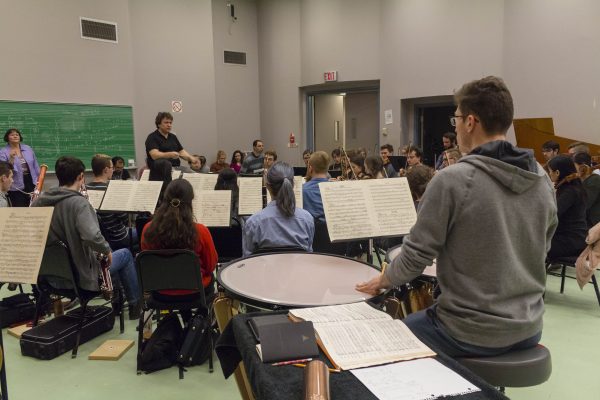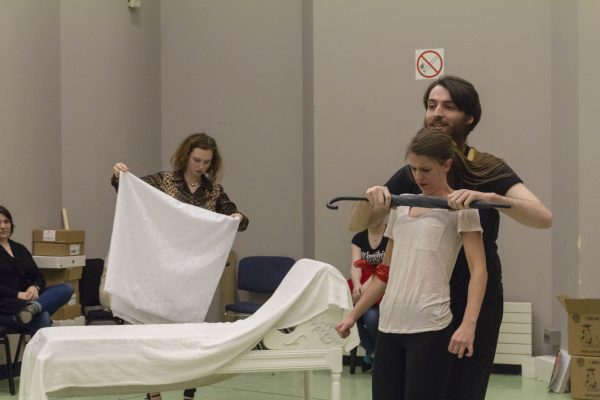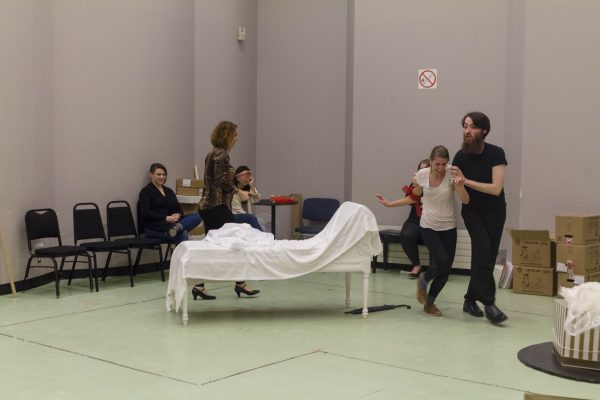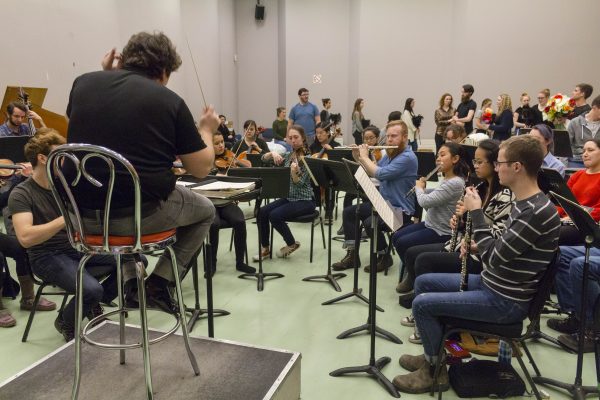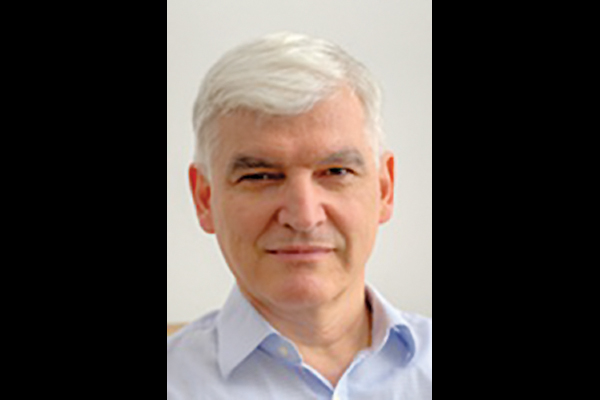Comedic Mozart opera set for end of January
The original ‘sitcom’ is up for viewing Jan. 25–27 as the University of Ottawa School of Music opera ensemble performs Mozart’s comic opera The Marriage of Figaro.
Comic operas were the first sitcoms, says vocal teacher and opera ensemble director Sandra Graham. The Marriage of Figaro is set over the course of one day, and features the servants Figaro (played by Kevin Burke and Gabriel Shapiro on different nights) and Susanna (played by Marlise Richie and Carmen Harris), about to be married, having to thwart the villainous Count Almaviva (played by Ryan Hofman and Adam Kuiack), who is planning on invoking his prima nocta rights to sleep with Susanna on her wedding night. Comedy ensues, and—like all comedies—everyone lives happily ever after in the end.
The opera also pecks away at the social hierarchy of the time period, with the servants getting the upper hand over the count.
“The whole thing is rather convoluted and all ends up happily ever after in the course of five minutes,” Graham said.
Preparation for the opera began in April 2017 with the auditions. Roles were cast in May and the libretto—the text of the opera—was given to the singers, who had to learn it mostly on their own over the summer. The opera is sung in Italian, with English used in short dialogue pieces to help the audience.
As for the orchestra, they are all volunteers. The orchestra tells the story just as much as the singers do, as Mozart was excellent at scoring for certain moments and emotions, and creates the narrative just through instrumentation.
“The music is the action,” Graham continued. “If you’ve got running music, if you’ve got laughing music … what does the music say to you? The music sort of tells you what, if you don’t understand the Italian, you can sort of figure it out.”
The singing and music are only half of an opera, of course. The staging is equally important, but it doesn’t require a theatre background to stage the opera. The music is what tells the story and helps make the staging easy.
“Mozart gives you a lot, according to what you’re singing,” Graham said. The singers know when to move or dance, when to laugh, or when to be serious, for instance, because the music tells them.
Graham stresses that Mozart wasn’t different from the rest of us; he was humble, never rich, and worked hard to make a living. He also died very young (at 33), and Graham wants us to think of what he could have accomplished had he lived longer.
The Marriage of Figaro was first performed in 1786, and Graham is convinced that tradition alone is enough to see it. But she also listed several other reasons for students to come to the opera.
“First of all, it elevates your soul. Secondly, it’s nice to support your fellow students. And the students are so talented, all of them,” Graham said. “And just think, you’re a part of something that’s several hundred years old. That music’s been flying around in this air sending out its vibrations for three hundred years.”
The Marriage of Figaro runs three performances from Jan. 25 to 27 at St. Brigid’s Centre for the Arts (310 St. Patrick St). Tickets are available online at Eventbrite.
